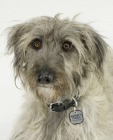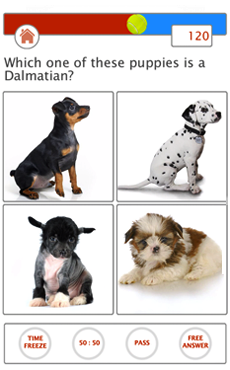Lurcher
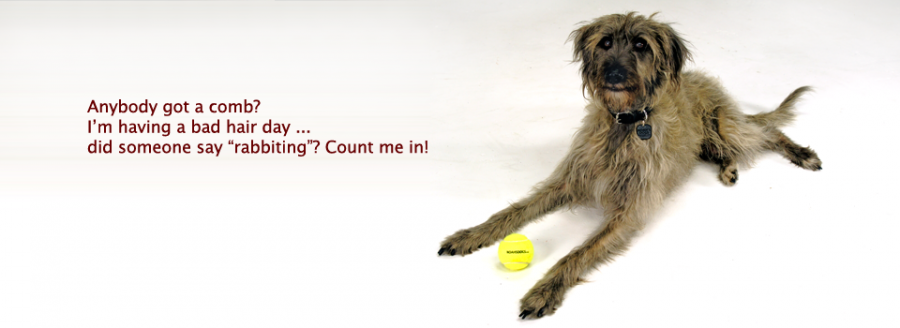
In my own words
I’m a greyhound terrier cross (I think), and my coat’s so rough I can’t do a thing with it! Some of my cousins are lucky and have short hair, but they still shed, hard cheese on them! Anyway, enough of that – when are we going rabbiting? Failing that, how about I catch a few rats for you? Failing that, how about we just go for a really good run? I’m good at that and can reach 40mph on the right ground – that’s as fast as a racehorse! Please, let’s go for a run, then when we get home we can have tea and snuggle down on the couch and watch telly. Bliss.
My ideal owner(s)
Country sports lovers
Active families
Sight-hound aficionados
Runners and hikers
Natural Leaders
People without pet allergies
What they say about me
Gentle
Sweet natured
Easy to train
Couch potato
Avid hunter
Dogs only home
Please read on, to find out more about me, and whether I will be someone you can be happy with for the next 13 years.
Is this Lurcher for you?
Test your knowledge about the Lurcher
Information essential about the Lurcher
Kennel Club Group:
Not registered with any major Kennel Club, but often bears the acronym HJCK (Hunt, Jump, Catch, Kill). Can be registered with the North American Lurcher & Longdog Association.
Size: Any size from Whippet to Deerhound. No standard measurements or weight. See under Conformation for more details.
Popularity:
For centuries associated with gypsies, the Lurcher has a new status as an active family dog and its popularity is increasing all the time. Many people consider it very ‘cool’ to own a Lurcher.
Breed History:
Lurchers first emerged in the 18th Century, associated with gypsies and poachers. The name derives from the Romany word lur, meaning thief or bandit, and cur, Middle English for a mixed dog breed. Sight-hounds such as Greyhounds, Wolfhounds and Deerhounds, while fast and effective hunters, did not have the intelligence to perform the tasks required by gypsies and poachers, ie pursuit and capture of rabbits, hares and game birds, often at night. Over time, certain crosses proved better than others, until the original sight-hounds, including the Saluki and the Whippet, were more often than not crossed with Terriers and Collies, which eventually produced the intelligent, canny Lurcher we know today.
Character:
Your Lurcher is actually quite lazy, and loves to take up most of the space on your sofa, or collapse in a hairy heap in the sun. However, once up and running, so to speak, he will become the intense, skilful hunter he was designed to be. This means making a few compromises for his sake, like not keeping cats or very small dogs or other small pets – to him they are dinner. However, your Lurcher is highly trainable, but needs real leadership from you. He is not a dog for small spaces, and needs a good sized garden to play in to burn off some of that energy. You will need to keep him leashed on walks or runs or you may find he has disappeared to go hunting, or has gone after the “wrong” prey, like your neighbour’s cat
Temperament:
Despite his advanced hunting instincts, your Lurcher is a gentle person, and very loving. He is naturally sweet natured, though the level of his tolerance of children may depend on what cross he is. A Collie cross might be more suitable for families with children than a Terrier cross which may be more feisty. Remember the word lur, Romany for thief? Turn your back from the kitchen table and you could easily find that what was on it isn’t there anymore, and your Lurcher will be licking his lips and trying to look innocent at the same time. Your Lurcher will keep you fit, and be a wonderful happy companion, giving you many rewards for the few compromises you make for his sake.
Conformation:
While there is no breed standard as such, your Lurcher, whatever his dimensions, should be long legged, with straight pasterns, have a very defined waist, a deep brisket and a longish, gently curved tail. He should give the appearance of floating lightness, despite his hardiness. The short coat can be flat and fine like a Greyhound, or slightly thicker like a Boxer. Terrier crosses tend to produce a wiry haired type, while long haired varieties, for example Saluki crosses, will be silkier
Colour:
Often brindle (mottled brown and black), Lurchers can actually be any colour from black through all the greys, browns, beiges and lemons, to pure white. Eye colour varies from dark brown to pale hazel or even blue
Training:
Your Lurcher looks for leadership, and is therefore very easy to train. But always remember he is a sight-hound, so if he sees a bunny running in the distance (and he is very long sighted) he’ll go after it, and he’ll be so focussed he won’t hear you calling him back. Therefore games off-leash are best kept to the back garden, while walks and runs are best on-leash. He won’t mind. A born runner, you might like to think about racing him in Lurcher races locally, or take him lure coursing, a great alternative to hare coursing which is now illegal in many countries.
Care:
Your Lurcher is not for the asthmatic. He will shed quite copiously whether long or short coated, and needs brushing every day. He is also prone to cuts on his pads, so be careful where you run him, avoiding flinty ground where possible.
Health:
Your Lurcher can live up to 13 trouble free years. The only problems to watch out for are hip dysplasia and slipped disc, so don’t let him run around in circles or jump too much. Like many deep chested dogs, he can suffer with bloat (gastric torsion) which can be life threatening. Feed him a little and often to prevent this happening and avoid exercise too soon after meals. Finally, your Lurcher can be sensitive to medication and anaesthesia, something your Vet should be aware of. However, Lurchers are hardy dogs, and you should have more than a decade of fun and affection with each other.
You may also like:
Lurchers looking for a home in UK »
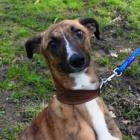 (Interest Shown)">
(Interest Shown)">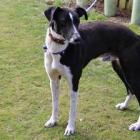 (Interest Shown)" class="overviewimg"/>
(Interest Shown)" class="overviewimg"/>
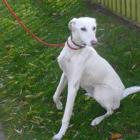
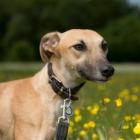
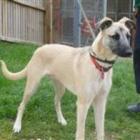
If you like Lurchers, you may be interested in breeds of the same size »
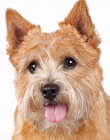
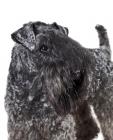
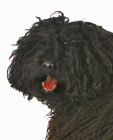
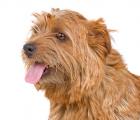
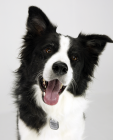
If you like Lurchers, you may like other breeds with similar characteristics »
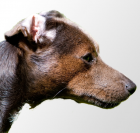
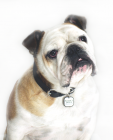
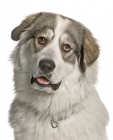
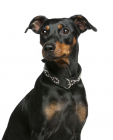
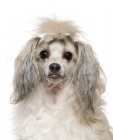
If you like Lurchers, you may be interested in these other hound dogs »
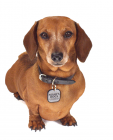
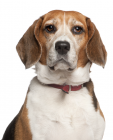
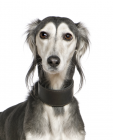
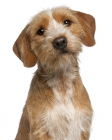
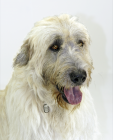
Advice on choosing your breed »
Find an animal shelter or rescue home where a Lurcher is waiting for a new home »
The following grid gives a fast track review which covers all breeds. You can apply it to help you decide if a Lurcher is suitable for you, the environment where you live, your personality and your lifestyle. On the grid, 1= strongly disagree, and 5= strongly agree. For example, if you are looking for a dog that makes a good jogging companion, look down the list under Activities, and you will see that Lurchers make great walking companions, scoring 5. If you want a dog that will suit your country lifestyle, and you will see that Lurchers are ideal country dogs, and score 5. You might like to save or print off this section and keep it for reference while you check some other breeds before making your final choice.
Be the first to rate this breed »
|
*PLEASE NOTE: All our breed profiles are general, and all dogs are individuals. Always talk to the breeders and meet the owners you are buying from. Try to meet the dog and its parents if it is a puppy in their home environment.








